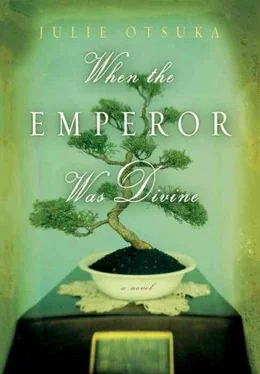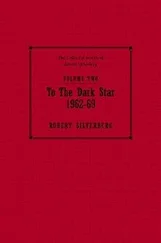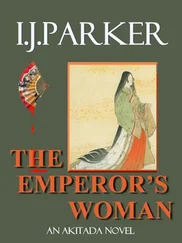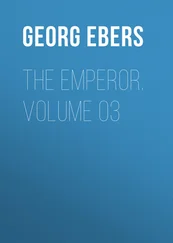THE GIRL STOOD in front of the cracked mirror, staring at the red dot on her chin. She touched it again and again. She said, “ Darling, kissy kiss.” She said, “Just one.” Then she frowned and she bared her teeth. They were small and bright and round, like hard glittering stones.
Gently he tapped her arm.
“What?” she said, but she was not talking to him. She was talking to her reflection in the glass. “What? What? What?”
“The horse meat.”
“What about it?”
“Where do they get it?”
She puckered her lips. “From horses.”
“What kind?”
She looked at him in the mirror. “The dead kind.”
He turned the mirror around so it faced the wall.
She went to the window and looked out across the black windswept barracks. Far away, on the other side of the fence, giant tumbleweeds were slowly rolling across the basin. Some of the horse meat, she explained, came from the racetrack. If a horse went down with a broken leg they destroyed it after the race and sent it to the cannery. But most of the horse meat came from wild horses. “They round them up in the desert,” she said, “and then they shoot them.” She asked if he remembered the wild mustangs they had seen through the window of the train and he said that he did. They had long black tails and dark flowing manes and he had watched them galloping in the moonlight across the flat dusty plain and then for three nights in a row he had dreamed of them.
“Those are the ones,” she said.
THREE IN THE MORNING. The dead time. Empty of dreams. He lay awake in the darkness worrying about the bicycle he’d left behind, chained to the trunk of the persimmon tree. Had the tires gone flat yet? Were the spokes rusted and clogged with weeds? Was the key to the lock still hidden in the shed?
But it was the little tin bell that troubled him most. His father had not fastened it securely to the handlebars. “I’ll put in the screws tomorrow,” he’d said. This was a long time ago. This was months and months ago, when the air still smelled of trees and freshly cut grass and the roses were just beginning to bloom.
“You never did,” whispered the boy.
By now, he was sure of it, the little tin bell was gone.
On December 7 it will have been a year since I last saw you. I read your letters every night before I go to bed. So far the winter here has been mild. This morning I woke up at dawn and watched the sun rise. I saw a bald eagle flying toward the mountains. I am in good health and exercise for half an hour after every meal. Please take care of yourself and be helpful to your mother.
FOR FOUR DAYS after his arrest they had not known where he was. The phone had not rung—the FBI had cut the wires—and they could not withdraw any money from the bank. “Your account’s been frozen,” the boy’s mother had been told. At dinner she set the table for four, and every night before they went to bed she walked out to the front porch and slipped her house key beneath the potted chrysanthemum. “He’ll know where to look,” she said.
On the fifth day she received a short note in the mail from the immigration detention center in San Francisco. Still awaiting my loyalty hearing. Do not know when my case will be heard, or how much longer I will be here. Eighty-three Japanese have already been sent away on a train. Please come see me as soon as possible. She packed a small suitcase full of her husband’s things—clothes, towels, a shaving kit, a spare pair of eyeglasses, nose drops, a bar of Yardley soap, a first-aid book—and took the next train across the bay.
“Was he still wearing his slippers?” the boy asked her when she returned.
She said that he was. And his bathrobe, too. She said that he had not showered or shaved for days. Then she smiled. “He looked like a hobo,” she said.
That night she had set the table for three.
IN THE MORNING she had sent all of the boy’s father’s suits to the cleaners except for one: the blue pin-striped suit he had worn on his last Sunday at home. The blue suit was to remain on the hanger in the closet. “He asked me to leave it there, for you to remember him by.”
But whenever the boy thought of his father on his last Sunday at home he did not remember the blue suit. He remembered the white flannel robe. The slippers. His father’s hatless silhouette framed in the back window of the car. The head stiff and unmoving. Staring straight ahead. Straight ahead and into the night as the car drove off slowly into the darkness. Not looking back. Not even once. Just to see if he was there.
CHRISTMAS DAY. Gray skies. A bitter cold. In the mess halls there were pine trees decorated with stars cut out of tin cans and on radios throughout the barracks Bing Crosby was singing “White Christmas.” Turkey was served for supper, and candy and gifts from the Quakers and the American Friends Service were distributed to the children in every block. The boy received a small red Swiss Army knife from a Mrs. Ida Little of Akron, Ohio. May the Lord look down upon you always, she had written. He sent her a prompt thank you note and carried the knife with him in his pocket wherever he went. Sometimes, when he was running, he could hear it clacking against his lucky blue stone from the sea and for a moment he felt very happy. His pockets were filled with good things.
THE WINTER SEEMED to last forever. There were outbreaks of flu and diarrhea and frequent shortages of coal. They had been assigned only two army blankets per person and at night the boy often fell asleep shivering. His hands were red and chapped from the cold. His throat was always sore. His sister left the barracks early in the morning and did not return until long after dark. She was always in a rush now. Her cheeks were flushed from the cold. “Where are you going?” “Out.” She ate all her meals with her friends. Never with the boy or his mother. She smoked cigarettes. He could smell them in her hair. One day he saw her standing in line at the mess hall in her Panama hat and she hardly seemed to recognize him at all.
Their old life seemed far away and remote to him now, like a dream he could not quite remember. The bright green grass, the roses, the house on the wide street not far from the sea—that was another time, a different year.
WHO WAS WINNING the war? Who was losing? His mother no longer wanted to know. She had stopped keeping track of the days. She no longer read the paper or listened to the bulletins on the radio. “Tell me when it’s over,” she said.
On days when there was hot water she went to the laundry room and washed all their clothes on the wooden washboard. Otherwise she had no tasks. She did not apply for a job as a nurse’s aide at the hospital, or as a timekeeper down on the project farm. The pay— sixteen dollars a month—was not worth it, she said. She did not give blood to the Red Cross or sit with the other mothers knitting wool socks and mufflers for the GIs who were fighting for freedom overseas.
Most days she did not leave the room at all.
She sat by the stove for hours, not talking. In her lap lay a half-finished letter. An unopened book. She wore a thick woolen scarf around her head to keep in the heat. A pair of baggy trousers. A heavy sweater. When the dinner bell rang she sat up with a start. “What is it?” she asked. “Who’s there?” In her mind there were always men at the door. We just need to ask your husband a few questions. She would stare down at her hands in her lap, as though surprised to find them still there. “Sometimes I don’t know if I’m awake or asleep.”
“You’re awake,” the boy would tell her.
SHE SAID she no longer had any appetite. Food bored her. “Go ahead and eat without me,” she said. The boy brought back food for her from the mess hall—a plate full of beans, a mound of pickled cabbage—and pressed a fork into her hand. But before it had even reached her mouth she stopped and stared out the window. “What is it?” he asked her. “Tell me what you want. Do you want rice?”
Читать дальше












